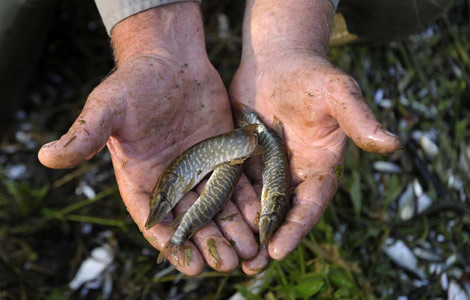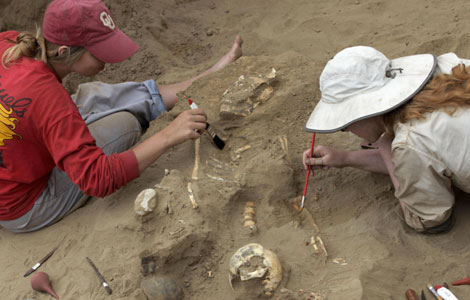

CANBERRA - Australia's Minister for Innovation, Industry, Science and Research, Kim Carr, on Thursday launched the Australian national science body CSIRO's Biosecurity Flagship aimed at helping protect the country's environment, agricultural industries and people from biological threats.
"Historically, Australia's geographic isolation has spared us from some of the most serious impacts of exotic pests and diseases that circulate around the world," Carr said.
"However we can't afford to be complacent. Having a strong biosecurity system backed by world-class science and research is increasingly important as our connection to the rest of the world grows through trade and people," he added.
Carr said that diseases, weed, invasive animals and insects, respecting no borders, can devastate Australia's crops, livestock and farm profits, the country's unique environment and occasionally human health.
"The new Biosecurity Flagship brings a national perspective and focus on the science needed to tackle these major biosecurity challenges that are facing our country."
The Commonwealth Science and Industrial Research Organization (CSIRO) has a proud history of biosecurity research, including the recent development of an equine Hendra virus vaccine and the delivery of a biological control for one of the world's most invasive pests - the silverleaf whitefly.
The Flagship builds on these successes, using scale and networks to help prepare for and prevent the spread and impacts of pests and diseases.
With an annual budget of 30 million AU dollars (27.5 million US dollars) from the Australian government and stakeholders, the Flagship will draw on the expertise of around 200 CSIRO researchers based across Australia, and work with more than 20 national and international partner organisations.
Biosecurity is a system of shared responsibility across layers of government, which needs a statistically sound understanding of risk, pathways of entry, optimized surveillance and rapid diagnosis.
"Improved coordination of biosecurity research in Australia will enable us to better protect public health, the environment and the economy into the future. It will also greatly assist other countries as they too strive to deal with the pests and diseases that continue to spread globally and threaten general health," Carr said.







